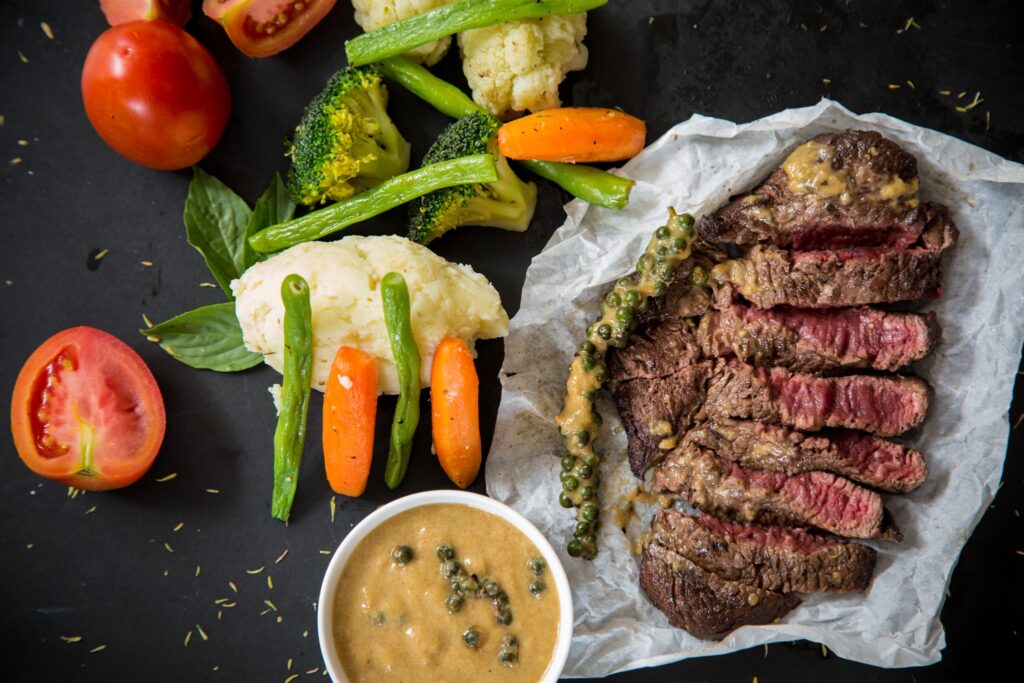
Can you start your car without putting any gas in it? Not! The relationship between the human body and calories is similar. Calories are essential for our bodies, and we cannot live without them. Unfortunately, the word “calorie” often carries prejudice, fear, and confusion. They are wrongly associated with weight gain, but in reality, they are our primary source of energy.
The question of how many calories one should consume per day is often asked, but there is no one-size-fits-all answer. Calorie requirements vary depending on various factors, making them specific to each individual.
In this article, we will help you estimate your daily calorie requirements and provide a better understanding of how and why our bodies utilize calories.
Understanding Calories
Definition: A calorie is an ancient unit of energy that was used in physics to measure the amount of energy required to heat one gram of water in a liquid state from 14.5 to 15.5°C.
Although calories are no longer part of the international system of units, they are still used in dietetics to express the energy value of food. Calories can be converted into joules, where 1 calorie is equal to 4.184 joules.
Therefore, 1000 calories are equivalent to 1 kilocalorie, abbreviated as kcal. Kilocalorie is the term most commonly used in the field of nutrition
The Energy Value of Food
- 1 gram of fat provides 9 kcal
- 1 gram of carbohydrates provides 4 kcal
- 1 gram of protein provides 4 kcal
- It’s important to note that 1 gram of alcohol provides 7 kcal, almost as much as fats.
However, since alcohol does not provide any essential nutrients to the body, it is often referred to as “empty calories.”
To calculate the total energy value of food, you need to determine the number of carbohydrates, fats, and proteins it contains, convert them into calories, and then sum them up.
Food calorie values should always be considered in context. They alone do not indicate whether weight will be gained, lost, or maintained, or if the food contains beneficial nutrients or is of good quality. Therefore, it is not advisable to choose a food solely based on its calorie content. It is irrelevant to claim that a particular food causes weight gain or loss.
When Does Energy Consumption Occur?
It’s crucial to remember that our bodies burn energy as long as we are alive! The body utilizes energy for every physiological activity, including:
- Movement (daily physical activity)
- Brain activity
- Breathing
- Digestion
- Heartbeat and regulation of heart rate
- Body temperature regulation
- Cell renewal, among others
Contrary to popular belief, our bodies require energy even during sleep. While we may consume less energy at night compared to physical exertion, the body continues to expend energy to maintain vital functions. Your heart keeps beating, breathing continues, digestion is ongoing, and body temperature must be maintained at 37.5°C.
As you can see, the human body constantly consumes energy. Hence, calories from food are vital, and excessively restricting calorie intake can significantly slow down the basal metabolic rate, which is unfavorable for the body.
Determining Your Daily Calorie Intake
Calculate Your Daily Energy Requirement
The daily energy requirement, also known as Basal Energy Expenditure (BEE), corresponds to the amount of energy needed by the body to function properly and compensate for energy expenditure. This energy can only be obtained from the calories in food.
Each person has a specific BEE, which depends on factors such as gender, age, weight, height, and physical activity level.
To determine how many calories you should consume per day, use the following calculation:
BEE = BMR x PAL
- BEE: Daily energy requirement.
- BMR: Basal Metabolic Rate, PAL: Physical Activity Level
1. Calculate your Basal Metabolic Rate (BMR)
The Basal Metabolic Rate is the number of calories your body needs to perform its basic functions at rest. There are different formulas to estimate BMR, but one commonly used equation is the Harris-Benedict equation:
- For Men: BMR = 88.362 + (13.397 x weight in kg) + (4.799 x height in cm) – (5.677 x age in years)
- For Women: BMR = 447.593 + (9.247 x weight in kg) + (3.098 x height in cm) – (4.330 x age in years)
2. Determine your Physical Activity Level (PAL)
Your PAL represents the additional energy expenditure based on your activity level. PAL can be classified into the following categories:
- Sedentary (little to no exercise): PAL = 1.2
- Lightly active (light exercise/sports 1-3 days/week): PAL = 1.375
- Moderately active (moderate exercise/sports 3-5 days/week): PAL = 1.55
- Very active (hard exercise/sports 6-7 days/week): PAL = 1.725
- Extra active (very hard exercise/sports and physical job or training twice a day): PAL = 1.9
3. Calculate your Daily Energy Requirement (BEE)
Multiply your BMR by your PAL to get your estimated daily energy requirement:
- Daily Energy Requirement (BEE) = BMR x PAL
Once you have your daily energy requirement, you can use it as a starting point to determine your calorie intake goals.
Weight Management
- To maintain your current weight, consume calories equal to your daily energy requirement (BEE).
- To lose weight, create a calorie deficit by consuming fewer calories than your daily energy requirement. A safe and sustainable weight loss rate is typically 0.5-1 kg (1-2 lbs) per week, which requires a calorie deficit of 500-1000 calories per day.
- To gain weight, create a calorie surplus by consuming more calories than your daily energy requirement. Aim for a gradual weight gain of 0.25-0.5 kg (0.5-1 lb) per week, which requires a calorie surplus of 250-500 calories per day.
It’s important to note that these calculations provide estimates and individual variations exist. It may be helpful to consult with a registered dietitian or healthcare professional for personalized guidance based on your specific needs, goals, and any underlying medical conditions.
Additionally, focusing on the quality of your food choices is crucial for overall health. Opt for nutrient-dense foods that provide essential vitamins, minerals, and fiber while supporting your calorie goals.
Tips to consider to manage your weight and health
1. Balanced Macronutrients
Pay attention to the macronutrients in your diet – carbohydrates, protein, and fats. Aim for a balanced intake of these nutrients to support your body’s needs. Include a variety of whole grains, lean proteins, healthy fats, fruits, and vegetables in your meals.
2. Portion Control
Be mindful of portion sizes to avoid overeating. Use smaller plates, bowls, and cups to help control portion sizes visually. Listen to your body’s hunger and fullness cues, and try to eat slowly to allow your brain to register when you’re satisfied.
3. Regular Meal Patterns
Establish regular eating patterns with consistent meal times. This helps to regulate your metabolism and prevent excessive snacking or overeating due to long gaps between meals.
4. Mindful Eating
Practice mindful eating by paying attention to the flavors, textures, and sensations of your food. Avoid distractions like screens or eating on the go. This can help you enjoy your food more and prevent mindless overeating.
5. Hydration
Stay hydrated by drinking an adequate amount of water throughout the day. Sometimes thirst can be mistaken for hunger, so it’s important to ensure you’re properly hydrated.
6. Physical Activity
Incorporate regular physical activity into your routine. Engage in activities you enjoy, such as walking, jogging, swimming, cycling, or joining fitness classes. Exercise not only supports weight management but also promotes overall health and well-being.
7. Supportive Environment
Surround yourself with a supportive environment that encourages healthy habits. This can include having a workout buddy, sharing meals with family or friends who have similar goals, or joining online communities focused on health and wellness.
8. Tracking Progress
Keep track of your progress by monitoring your weight, measurements, or body composition changes over time. However, remember that weight is just one aspect of health, and other factors like improved fitness, increased energy levels, and overall well-being are equally important.
Remember, sustainable weight management is a journey that requires consistency, patience, and a holistic approach. It’s always a good idea to consult with a healthcare professional or registered dietitian for personalized advice and guidance based on your specific needs and circumstances.


